The first Russian edition of Boris Psternak’s Doctor Zhivago was published in Italy by Feltrinelli in 1957. Within a year, it had been translated into many languages and became an international literary sensation. Like every great work of literature, Doctor Zhivago has an engaging plot and a profound message. The novel depicts a man caught up in the whirlwind of far-reaching political change that he is unable to influence, a man who treads a difficult path between the Old and the New Russia, being able to see the merits and faults of both. It is a profoundly humane and humanistic novel, in which the author’s and the progatanist’s background in Russian Orthodoxy is occasionally evident.
Boris Pasternak, was born in Moscow in 1890, and the upheavals in Russia that he wrote about in Doctor Zhivago had touched him personally. The portrayal of the “brave new world” of the Soviet Union as a uncompromising system lacking checks and balances, and short on human understanding, resulted in the rejection of the novel by the Soviet establishment. Zhivago’s understanding that the injustices of the Tsarist class system made the February 1917 revolution both inevitable and necessary did not endear him to the monarchist circles among Russian émigrés.
The two very different reflections on the novel presented below are by ROCOR authors, and may appear to say more about the Russian Church Abroad than the novel itself. The first one is written by Archimandrite Constantine (Zaitseff), who was born in Saint Petersburg in 1887, and the second by Bishop Nathanael (L’vov), who was born there in 1906.
Protodeacon Andrei Psarev,
March 3, 2024
Some Thoughts Regarding Pasternak’s Novel
I started reading it in Novoe Russskoe Slovo with interest but dropped it after a week. Something somnambulistic pushed me away, lurking as it did beneath a verbal texture which whimsically combined momentarily varying artistic photo shoots with flashes of refined and bold poetry. When I got the book, I found it easier to read. I will admit that once I was halfway through, I was increasingly falling under the charm of a huge artistic work.
A question arose — is this art or “literature”? While totally acknowledging the author’s talent, I am leaning toward the second definition. Genuine art is honest. Can this label be applied to Pasternak’s novel? I don’t think so. And this is so applicable to both basic ways of violating honesty that occur in “literature.” The first such way is the intentional introduction of falsehood due to utilitarian considerations. Our older literature was far from this. The censors could prevent the expression of this or that, but no one, according to the general rule, could be made to say something at the expense of the “truth” one was proclaiming. That is not the case in the USSR. Over there the written word is invariably a way of serving falsehood. Is there a percentage of falsehood in whose presence art remains art? This question is just as nonsensical as asking if the early Christians had to invariably throw a handful of incense into a pagan censer to become an apostate. And Pasternak has scattered pinches throughout his vivid picture. For example, Zhivago, and these are not his own words about himself but the author’s words about him, is observing the beauty of the inspirationally enthusiastic reading to which Lara has become devoted in the reading room.
He saw her side-face, almost from the back. She wore a light check blouse with a belt and and she sat, lost in her book, utterly absorbed in it, like a child, her head bent slightly over her right shoulder. Occasionally she stopped to think, looked up at the ceiling or straight in front of her, then again propped her cheek on her hand and wrote in her notebook with a swift, sweeping movement of her pencil.
As she returns the books, he glances at what Lara has returned. What thrilled her? The last edition of Marx’s teachings, which she needed as a teacher!
The books she had just returned were still lying on the counter where he had put his own. They were text books on Marxism.[1]This and the previous quotation are from Part Two, Chapter VII, “Arrival”, Section 12, of the English Translation of Doctor Zhivago by Max Hayward and Manya Harari, first published in 1958, in … Continue reading
Do we need other examples? We will be told that such is the general fate of writers. Yes, but this removes the possibility that true art will appear in the USSR. I know of only one exception — Zoschenko, in his craziness, found a voice in which he could speak the truth in the USSR.
The second way in which the honesty of literature is violated is its moral and religious irresponsibility, or, to be more precise, its lack of meaning. Can true beauty be attained with an attitude of indifference to truth? A true artistic work cannot be an arbitrary verbal game, self-indulgence. It is important how an author says something, but first of all it is important to see what he is trying to say. This is what gives true value to any work of literature. It is precisely in this respect that contemporary art lacks meaning. Not only does form prevail over content, but neither is there any true content — the author has nothing to say! This results in a combination of perfection, in the sense of mastery over the creative apparatus, with arbitrariness in principle, and, ultimately, with inner excess, defined by Smerdiakov’s comment, “Everything is allowed.”
I will clarify this with an example. In the old days, back before the First World War, I happened to attend a symphony concert at the Assembly of the Nobility in St. Petersburg. A new piece was being performed — Stravinsky’s Variations, I believe, and they were quite varied. Along with a dance tune in a cafê-chantant style the composer was inspired by the strict prayerfulness of a chorale. Talent was sparkling forth. But whe this was immediately followed by Mozart, a sigh of relief rose in my chest. Americans would have said “relax,” and the French would have said “detente.” I cannot think of a Russian word.
Pasternak is more refined than Stravinsky. One will hardly find such crude tastelessness in him. But the basic point is the same. For Pasternak as well everything, be it the roughest scene of some rough Soviet reality or the loftiest religious phenomenon, is a theme. His novel does not consist of variations upon a single theme, but of an infinite multitude of independent “themes.” And each “theme” serves merely as an occasion to handle it artistically. Consequently, if Pasternak takes something truly lofty as his “theme,” he easily falls into blasphemous tastelessness. If it is absent, he is walking a tightrope along its verge. In the best case he is saved by reticence, and then the reader himself fills up the picture according to his conscience, imputing this result to the author with essentially no right to do so.
This phenomenon, so typical for our contemporary situation, is a kind of “idiocy,” not in the current sense of the word, but in the precise Ancient Greek sense. We are dealing with people’s atrophy of the actual receptors that sense phenomena of a spiritual nature. And in this sense Pasternak has nothing to offer. He awards his hero as well with this characteristic. How else are we to understand his behavior during the shootout with the “white” partisans who had captured him? He sympathizes with the selflessly courageous adolescents and youngsters who are being shot at by the prone partisans. Upon obtaining a gun he himself starts shooting, attracted by imitation, nothing else! He tries to miss, but he still hits someone, and he thinks he may have killed that person. He is later able to approach his victim, who regains consciousness, and the doctor gives him help. This episode is the latest “theme.” Zhivago’s behavior is given no explanation. It is something “normal” — such is both the author’s and his hero’s state of mind . . .
The author fleetingly gives us an explanation of this “normalcy.” It turns out that Doctor Zhivago possesses a well-developed intellect and a keen body of feelings, but totally lacks a will. So here the mystery is revealed to us. Is it possible for a person to have a religiously moral receptor in the absence of a will if he AGREES to it? This is not humility, which is ultimate self-denial in the face of a recognized Truth, and not agreement to any lie along with agreement to any “truth,” depending on circumstances, attitudes, and experiences. “I am like her — wherever the wind blows, that’s where I go,” says a peasant sage in Bunin’s story “The Tree of God.” The “wherever the wind blows”principle can be manifested not only in cynically coarse forms — this changes nothing. And if anything here opens upa way to salvation, that could only be a penitential awareness of one’s own weakness and not in any way its vesture in bright garments and all kinds of betterment of one’s lukewarmness. Pasternak’s creation is a jeweled portrait — one that is “moiré,” as Rozanov would say — of such iridescence framing the baseness of evil with caressing nuances of light. And this brings to naught the only THEME — the hopeless tragedy of a person standing before the face of a Truth that is simultaneously being acknowledged and flaunted . . .
Only if we keep all this in mind can we soberly assess Pasternak’s novel in its significance as a social and spiritual phenomenon. Whoever takes Pasternak’s novel at face value, based upon his attestations that it is a work of art, will be made a fool of. And he will also be made a fool of if he accepts Pasternak’s creation as a so-called “human document” that is subjectively true and therefore opening up the possibility of detecting objective veracity as well. No, we are faced with a combination of a “social demand,” customarily received from the outside as a mandatory condition of the Soviet “work of art,” along with that artistic “whim” that set the tone for the Russian art — decadent art! — of the end of our imperial era, and which became a feature of the leading lights who had lived through the Russian catastrophe and did not experience a profound inner transformation. Even if “October” was rejected to a certain degree by such people with total sincerity, they did not have the strength to make their way out of “February.” In the social and spiritual context these are the shadows of “February,” guarded by the free West or the calculation of the Communist East. Zhivago, Pasternak’s twin, likewise represents such a shadow. To the extent that this shadow of the past becomes a symbol of the future life this will serve the Bolsheviks’ purpose.
How does Pasternak formulate the vivifying action of Doctor Zhivago and the apparent living memory of him as a person upon his friends who had become his followers and pupils? Let us reproduce the conclusion of the novel’s epilogue:
In the intervals of reading, they exchanged reflections and followed their own thoughts, it grew dark so that they could no longer make out the print and had to put on the light.
Moscow below them and reaching into the distance — Moscow, the author’s native town and a half of all that had befallen him — now appeared to them, not as the place where all these things had happened, but as the heroine of a long tale of which that evening, book in hand, they were reaching the end.
Although the enlightenment and liberation which had been expected to come after the war had not come with victory, a presage of freedom was in the air throughout these post-war years, and it was there only historical meaning.
To the two ageing friends sitting by the window it seemed that this freedom of the spirit was there, that on that very evening the future had become almost tangible in the streets below, and that they themselves had entered that future and would, from now on, be part of it. They felt a peaceful joy for this holy city and for the whole land and for the survivors among those who had played a part in this story and for their children, and the silent music of happiness filled them and enveloped them and spread far and wide. And it seemed that the book in their hands knew what they were feeling and gave them its support and confirmation.[2]This is the very end of the novel: Part Two, Chapter XVI, “Epilogue”, section 5. What they are reading is “the book of Yury’s writings which Yegraf had compited”. Yury is Dr Zhivago. … Continue reading
Is this not somnambulism? Everything has been accomplished! “The music of happiness”! The radiant “future” has already begun, just believe and anticipate . . .
In addition, the poems of Doctor Zhivago find their place after the epilogue. Some of us also take them as a vivifying “music of happiness.” For me they recalled the bitter taste of my initial acquaintance with the novel, not in terms of somnambulism, but due to another feeling. I can give it no other name than a feeling of moral squeamishness. On one hand there is weak-willed aestheticism that is partly colored sexually, while in another section it is aimed toward Golgotha as the latest “theme” of his perception. What else can such a super-epilogue of such a novel be called other than shamelessness?
And yet I have not said my last word about Pasternak’s novel. There is something in it — that is truthful! Perhaps it is hidden, perhaps the author is himself not aware of it. It speaks from the depth of the subconscious, and it is this that makes Pasternak’s novel something that is still alive, to which our thoughts return willy-nilly. These are not the “discussions” which the author inserts into the mouths of his heroes. Those are “words, words, words.” No, something elemental, lurking but still existing shows through the novel, receiving its final expression in the fate of the novel’s heroes, in their final fate. Here the voice of TRUTH is heard most distinctly — in Strelnikov’s suicide, in Lara’s banishment to the concentration camp, and in the “insolent” death of a debased Doctor Zhivago, committed to the earth without a funeral, and in Tonya’s departure with their children outside Soviet borders.
This is not somnambulism. Neither is this aestheticism. It is the light of Truth shining through evil illusoriness. It is the discovery of the novel’s only THEME — the tragedy of the individual, the true tragedy in the face of the actual, and not the illusory, Truth. This is a testimony that Boris Pasternak is not simply a twin of Doctor Zhivago. This is testimony that there is also art in the novel.
Archimandrite Constantine
Pravoslavnaia Rus’, 5 (1959)
Christian Motifs in the Poetry of Doctor Zhivago
At some point all literature of Christian nations was saturated with Christian motifs. Ardent and deep love for Christ illumined almost each page coming out of the pen of the writers of Russia, Europe, and America.
We have become unaccustomed to this over the past decades. Undergoing bloody persecution in one part of the world and being respectfully crowded out in another, Christianity has almost entirely gone off the pages of world literature.
And now, suddenly, it has shone forth in the creation of a writer who for forty years has been under the yoke of the most merciless anti-Christian power and of satanic powers of evil which mobilized in a concentrated manner and became incarnated in the regime that captured our native land.
We are not surprised by this ourselves. We have always known that love for Christ and devotion to Him presently dwells with greater force and fulness precisely in the depth of our people. But to outsiders this seems to be surprising, and they write in amazement, “How could such an apostle of life with a deeply felt sense of its Christian holiness have lived in the nightmare of life-shattering and soul-destroying Communist revolution and tyranny?”
For us Doctor Zhivago, Boris Pasternak’s creation, is most valued precisely for its manifestation of a radiant and profound love for Christ and its faith in Him, and although it is not mainstream, it is still sincere.
With great boldness but with profound truthfulness, and we could say, holiness, the lines from the poem “The Garden of Gethsemane” which Pasternak places in Christ the Savior’s mouth remind us of similar words being placed into Our Lord’s mouth by the early holy hymnographers. These lines will enter Orthodox souls along with the best religious lines in the poems of Derzhavin, Pushkin, Lermontov, and A. Tolstoy, along with the best Christian pages in Dostoevsky.
And since the pages of Doctor Zhivago were not written in the calm and quiet of the nineteenth century, but in the darkness of bloody anti-Christian persecutions, with confessional valor, they will be loved even more.
(..). ‘Disputes can never be resolved with iron,
Put your sword back in its place, man.
‘Could my Father not provide me
With hosts of winged legions? Then,
Having touched not a hair upon my head,
My enemies would scatter without a trace.
‘But the book of life has reached a page
Dearer than all that’s sacred.
What has been written must now be fulfilled.
Then let it be fulfilled. Amen.
‘For the course of the ages is like a parable,
And can catch fire in its course.
In the name of its awful grandeur, I shall go
In voluntary suffering to the grave.
‘I shall go to the grave, and on the third day, rise,
And, just as rafts float down a river,
To me for judgement, like a caravan of barges,
The centuries will come floating from the darkness.’ [3]English translation copyright by Richard Pevear and Larissa Volokhonsky 2010.
These and many other lines from the poems and the text of Doctor Zhivago will enter deep into the Christian soul.
It is worthwhile to note the apparently totally unconscious spiritual interchange across the centuries. Pasternak probably never read St. John Chrysostom. The tradition of the Russian intelligentsia in which he grew up and was nourished had already long before led Russian thinkers away from such reading, which had previously been the favorite reading material for our distant ancestors.
But in his Magdalene poem Pasternak repeats the thought of John Chrysostom. The sufferings borne by St. Mary Magdalene, who preserved her devotion and love for the Lord after His death on the cross, purified and elevated her so spiritually that she turned out to be capable of being the first to absorb the greatest truth of Christianity — the news of Christ’s Resurrection. Having become an apostle for the apostles she could preach this truth to them as well as to the whole world. Such were the approximate ideas that St. John Chrysostom expounded.
Pasternak says the same as well when he places the following words into Mary Magdalene’s lips:
But three days – such days and nights will pass
They will fill me with such crushing dread
That I’ll see the joyous truth at last
I shall know that Christ will rise from the dead. [4]internetpoem.com/boris-pasternak/mary-magdalene-ii-poem, accessed Jan, 30, 2024.
Pasternak’s book has elicited acknowledgement and admiration in the entire free world. But it, of course, is not printed in the Soviet Union. And nonetheless, the American reviewer is mistaken when he says that this book, which has received the approval of the entire world, will remain unknown to the Russian reader.
No, this book is already widely known and loved in Russia. We have heard that Russian students frequently know its poems by heart, and even before the book itself turned up outside Russia these poems were already handed over by Russians from there to Russian immigrants here. And of course, these lines have entered Russian thought, the Russian soul, firmly — forever.
Thus, it is no surprise that Pasternak’s creation elicited such vitriolic hatred on the part of the persecutors of the Russian soul. It could be that this phenomenon is even a better testament to his book’s value than being awarded the Nobel Prize.
People can make mistakes. But Satan recognizes unmistakably everything that is hateful to him. And when his servants and heralds, in paroxysms of anger, yell words full of hatred and fury regarding the new book, this alone could lead us to guess that here is something that is incredibly good and quite valuable.
Although Pasternak is under the yoke of this satanic regime, being in full possession of Christian valor, he does not fear it. As he says, “I am already an elderly person, and the biggest thing that can happen to me is death. And it should not be feared.”
This is because he professes that
… Death can be overcome
By the effort of the Resurrection.
May Boris Pasternak receive a full churchly prostration. And glory be to him!
Bishop Nathanael (L’vov)
Besedy o Sviashchennom pisanii i o vere i o tserkvi 4 (New York, 1995)
References
| ↵1 | This and the previous quotation are from Part Two, Chapter VII, “Arrival”, Section 12, of the English Translation of Doctor Zhivago by Max Hayward and Manya Harari, first published in 1958, in London, by Collins and the Harvill Press; as is the longer quotation later in this essay. |
|---|---|
| ↵2 | This is the very end of the novel: Part Two, Chapter XVI, “Epilogue”, section 5. What they are reading is “the book of Yury’s writings which Yegraf had compited”. Yury is Dr Zhivago. Yevgraf is Yury’s half-brother. The war referred to is the Second World War. This incident is set on a “summer evening” some ten years later than the conversation in the previous section, which itself took place after the Second World War. So we may suppose for this passage a date in the mid 1950s, some 20 years or more after the death of Dr. Zhivago, and just before the first publication of novel in Italy in 1957. The “two ageing friends” are Misha Gordon and Nicky Dudorov, once friends and contemporaries of the long-dead Yury Zhivago. |
| ↵3 | English translation copyright by Richard Pevear and Larissa Volokhonsky 2010. |
| ↵4 | internetpoem.com/boris-pasternak/mary-magdalene-ii-poem, accessed Jan, 30, 2024. |

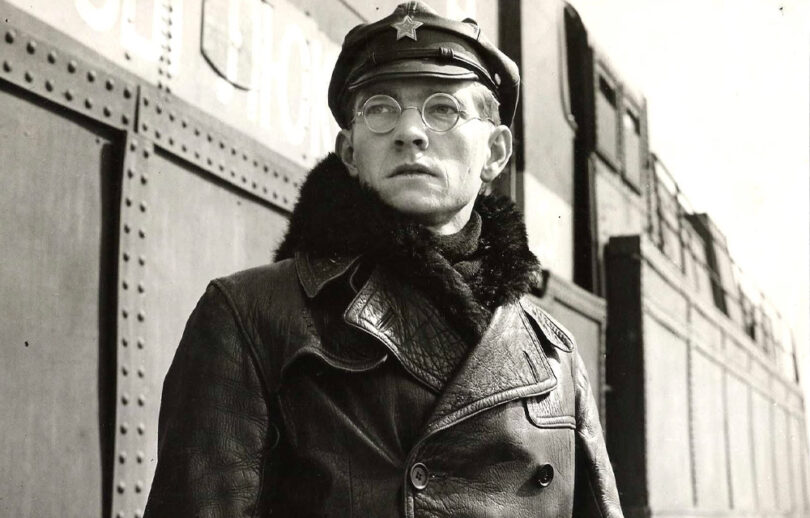
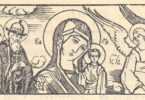
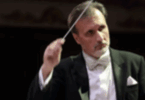
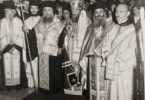


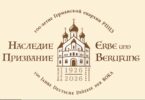
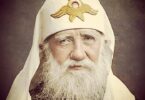
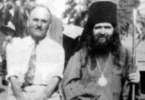
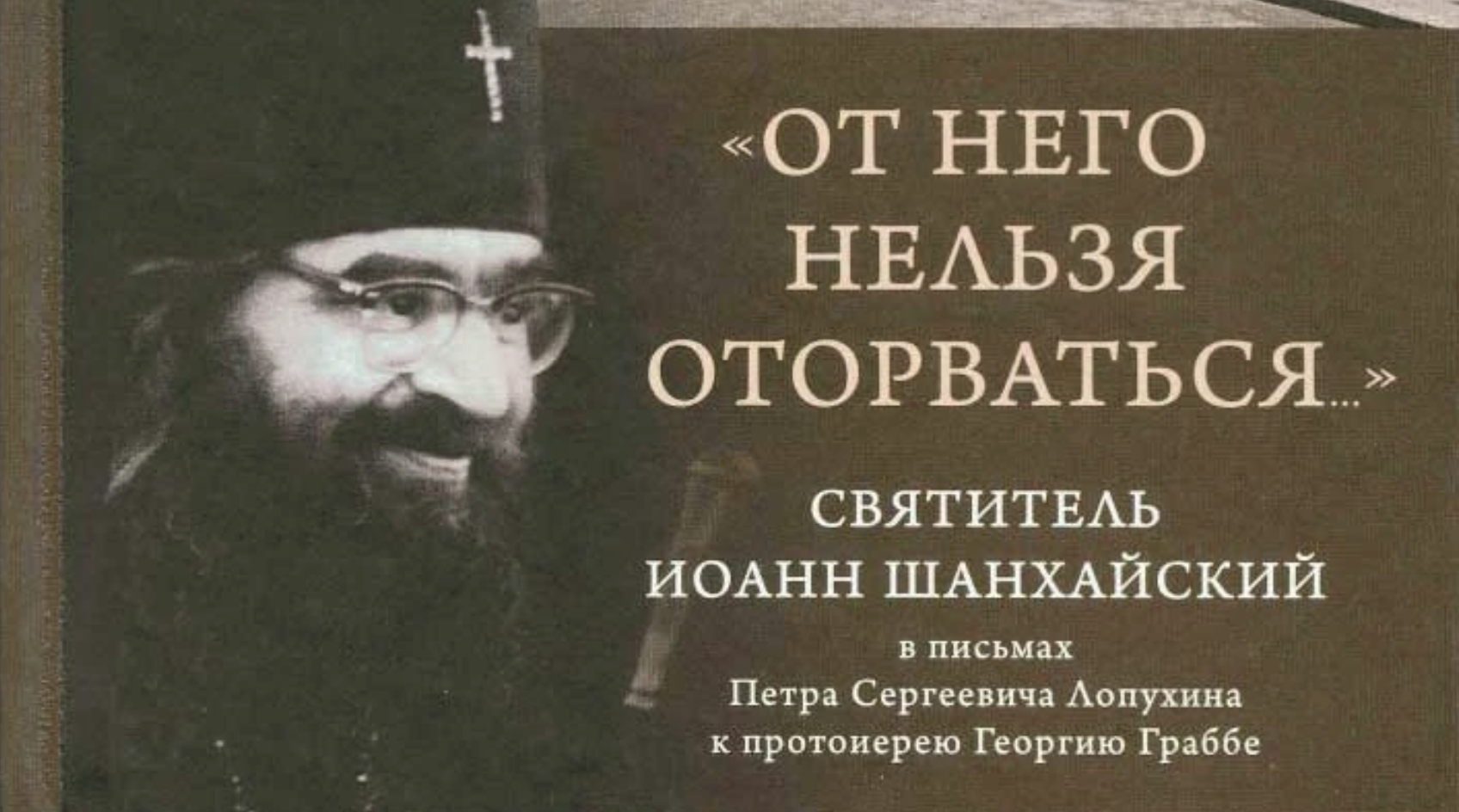

In one of the early chapters of the book, Doctor Zhivago, the word “theosophist” appears which leads me to believe the novel transcends what was printed. For instance, in the 1965 movie Doctor Zhivago, all of the actors age accordingly but not Lara. Does Lara represent Mother Russia ? There is a certain spiritualism and mysticism to the novel.
In relation to Paul Manoli’s comments, I suggest that the reason it seems that Lara doesn’t age is that she disappears from Zhivago’s life at around the age of 30, and only reappears in the novel, briefly, just after his death. She had just come to Moscow from Irkutsk to arrange for the further education of her daughter, Katya. In her soliloquy over the body of Zhivago she gives some sense of her aging as she speaks, enigmatically, of the sorrows of her recent past. But shortly afterwards she disappears again and, it is suggested, she she may have been arrested and died “a nameless number” in one of the “concentration camps in the north”.
Nor do I think, with Paul Manoli, that Lara quite fits the idea of Mother Russia. She has to be considered alongside Zhivago’s wife, Tonya. Tonya, one might say belongs to the old Russia and survives outside Russia; Lara represents what was good about the new Russia, remains there, but falls victim to it. The two women represent the two Russias, and the two poles of Zhivago’s life, between which he is torn, ultimately to breaking point. Indeed, his heart is literally broken. He dies of a heart attack, struggling to get off a Moscow tram and collapsing in the street.